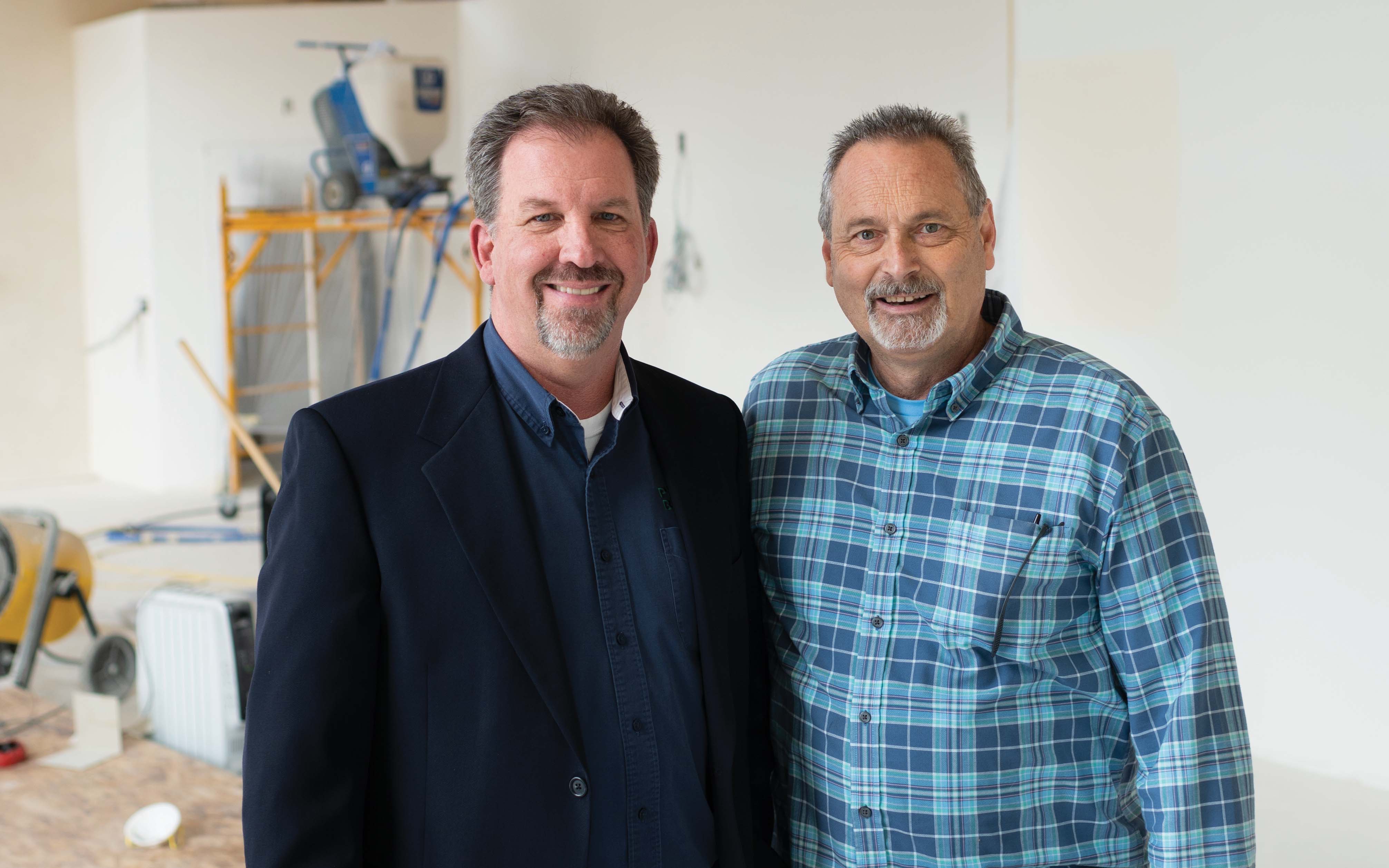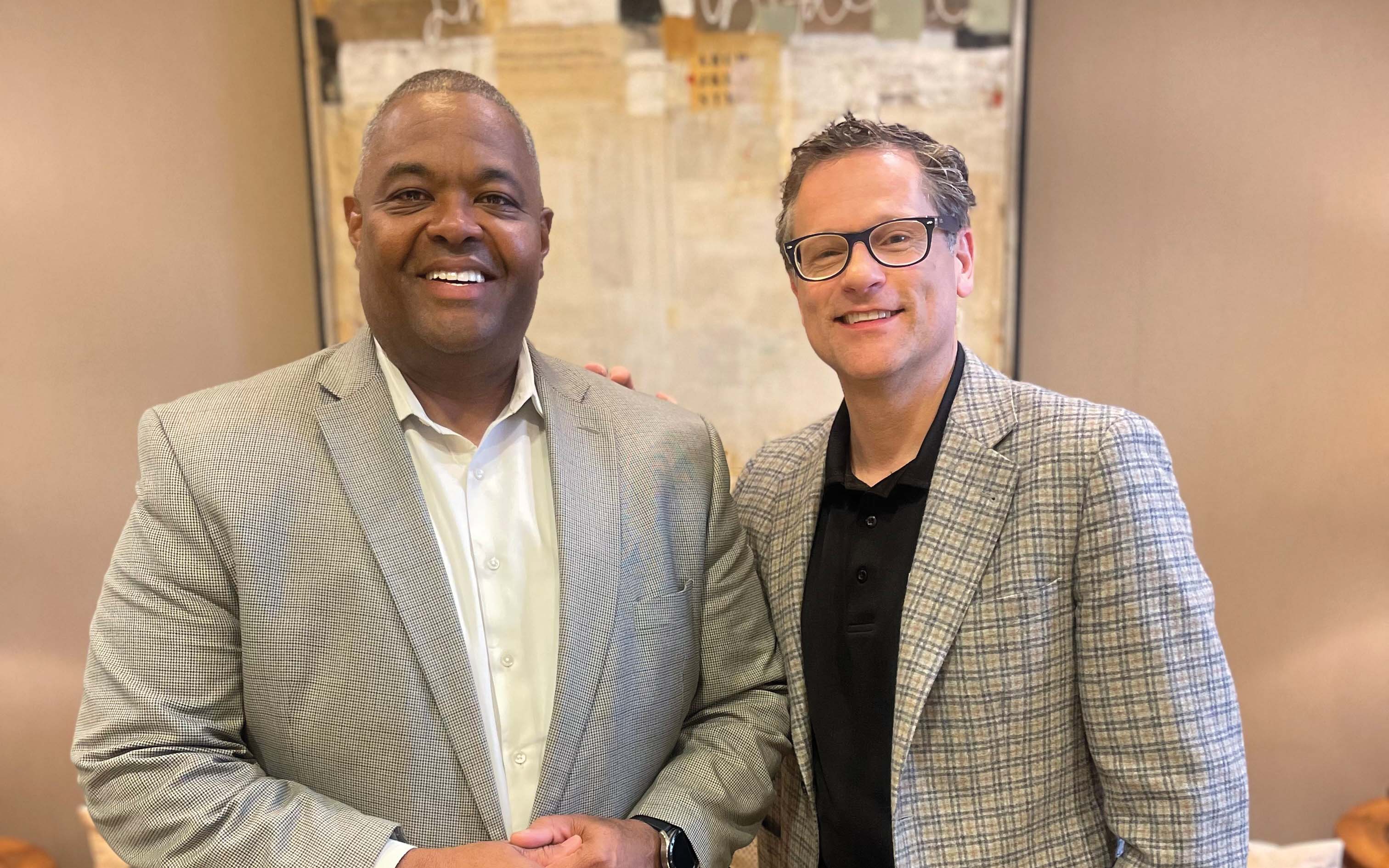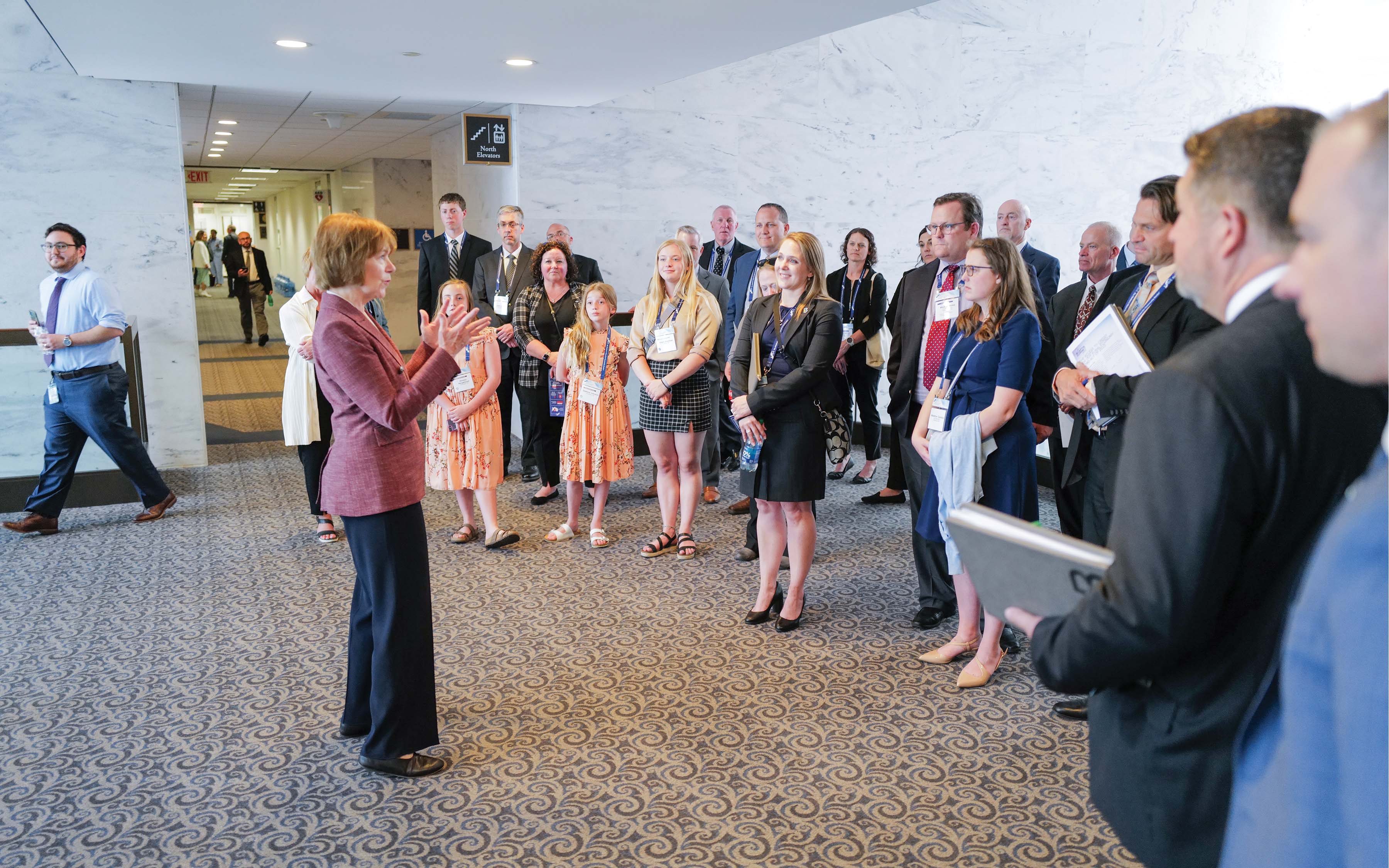Plumas Bank, Quincy, Calif.

In Carson City, Nev., local nonprofit Friends in Service Helping (FISH) provides not only subsidized housing to people in need but also an opportunity for a career in the trades—thanks to a creative financing solution crafted by Plumas Bank.
The $1.6 billion-asset bank is based in California but has a growing presence on the eastern side of the Sierras. Ty Nebe, Plumas Bank’s senior vice president and ag/commercial loan officer serving Carson City, is the one who helped to make the project a reality.
FISH wanted to build a property that would contain space for housing and transitional career training for adult students in medical, technology and trade programs to help clients pull themselves out of poverty, as well as subsidized housing for their families.
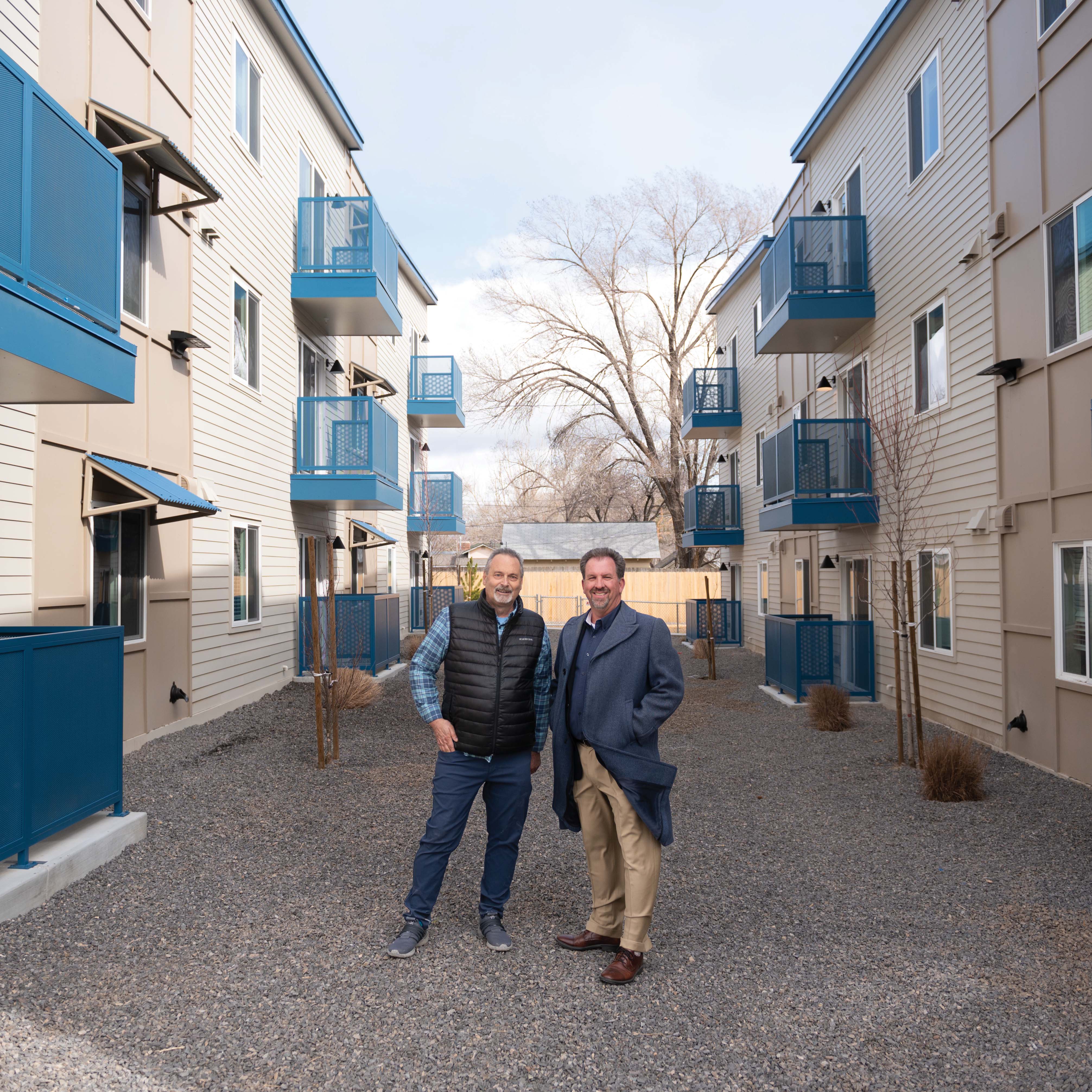
One principal donor contributed a substantial amount of money on the condition that FISH maximize the required commercial building in front of the two 18-unit apartment complexes. The nonprofit was successful in raising a good bit of the $17.5 million total construction cost, but it was having trouble obtaining financing for the balance due to the disconnect between the appraised value of the property and the actual cost to construct.
“Unfortunately, the [office building] comps in the Carson market are dictated by the state of Nevada, because this is the capital city and the state leases a lot of the buildings, and we were limited to $1.45 per square foot,” Nebe says. “So, we had to get creative and do a line of credit and tie it to FISH’s existing facility a block north of the project that they owned free and clear, so they could pull some equity.”

Plumas Bank extended a line of credit of $1.785 million, giving FISH an extra $200,000 in case there were any cost overruns during construction. This funding structure enabled the bank to make available the necessary $7.7 million for the project to reach completion, and the bank also came forward with a $15,000 donation.
Once the project is completed, Plumas Bank will extend a permanent loan to FISH that the nonprofit will use to pay off the line of credit. “The project is something that’s dear to my heart because it’s helping our community and it’s a new concept—a hand-up, not a hand-out concept,” Nebe says.
Chelsea Groton Bank, Groton, Conn.
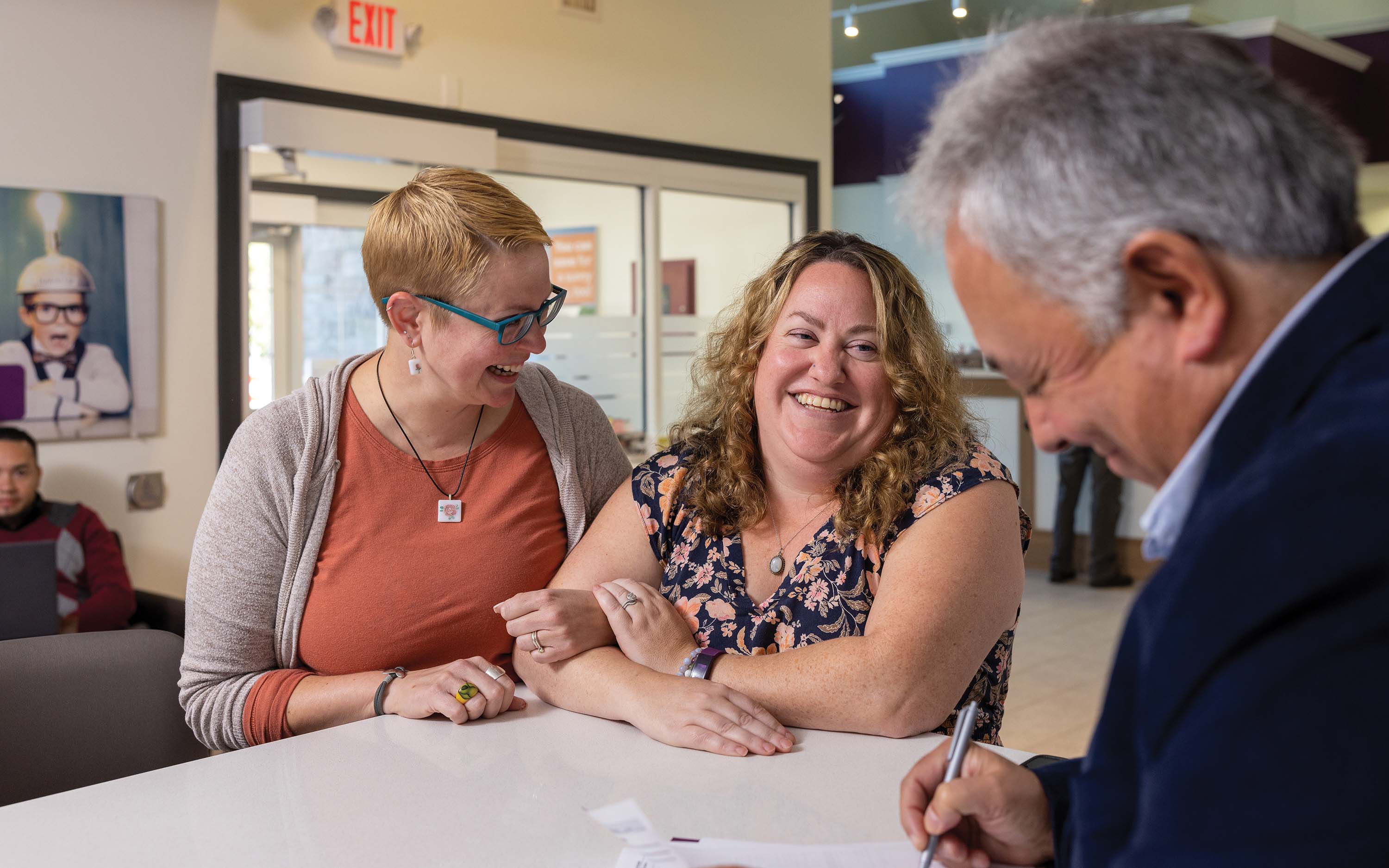
The employees of $1.6 billion-asset Chelsea Groton Bank go out of their way to help first-time homebuyers.
One couple wanted to buy the home they had been renting for 10 years, but the husband, who had the primary income, had poor credit, and the wife only worked part-time, says mortgage specialist John Cassata.
Cassata suggested that the couple find a cosigner and consider applying for an FHA loan, and the husband’s brother—a successful business executive—said he would help.
“They applied in [June], but it took until August to close because there were some liens and other outstanding things with the seller,” he says. “But we all hung in there. Daniela Ness, my assistant, was very instrumental in helping these folks close.”
Cassata and Ness also worked with the seller’s attorney to have the $8,000 in closing costs included in the final sale price. The couple’s landlord gave them a good break on the price, and consequently, they were able to finally buy the home with a 3.5% down payment of about $5,000.
“The wife has been living in the community all her life, with a lot of [family] and friends,” Cassata says. “She tells people that we’re just not a typical ‘one and done’ transactional lender—we really work with people until the close, and we do a nice job.”
Chelsea Groton Bank also offers educational classes on personal finance, small business finance and first-time homebuying, including a homebuying class taught in both English and Spanish languages, says Miria Gray, the bank’s community education officer.
“It’s important to us that our classes are open to everyone, because it makes our community more vibrant,” Gray says. “It supports our small businesses more. People have more expendable income because they understand how to better manage their finances.”
Kennebec Savings Bank, Augusta, Maine
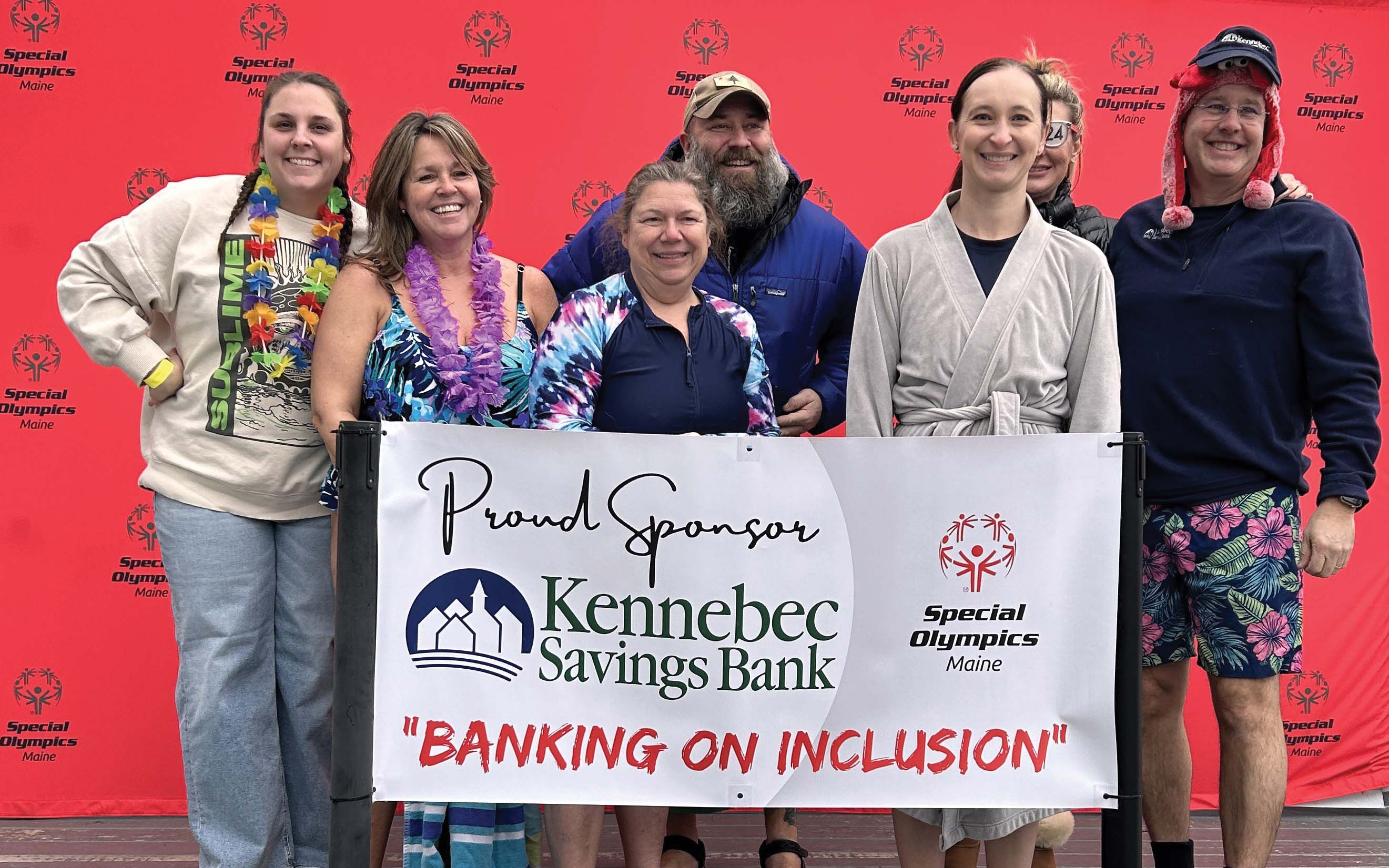
Kennebec Savings Bank knows that working with customers on an individual level can make a huge difference in its community.
One of the $1.7 billion-asset community bank’s customers confided to a branch teller that she was unable to have her 9-year-old daughter live with her because her housing had a limitation of the number of people who could reside there. Bank staff worked with the church next door to the branch, which found better housing and gave the woman money for a security deposit, so she could be reunited with her daughter, who had been staying with the grandmother.
“Afterward, she came into the branch in tears of joy because she had found a new place,” says Andrew E. Silsby, president and CEO. “It’s all about knowing our customers, being the fabric of the community and making those connections for people.”
Knowing customers well can also save them from a potentially fraudulent situation. Recently, an elderly customer came into a Kennebec branch to withdraw a large amount of cash, but the teller noticed that it was abnormal for his activity and asked him if he would be willing to speak with the branch manager.
“The customer was very nervous, and he seemed a little reluctant at first to share what he was doing, then he finally explained to the branch manager that he was taking the money out to build the deck on his home,” Silsby says. “But the branch manager knew that he lived in a condo with an association that wouldn’t allow for decks to be built, so she asked a few more questions. He finally broke down in tears and he pulled his phone out and the fraudster was on the phone listening to the conversation.”
The man had thought he was paying a computer technician for virus protection, but the person was an imposter. The fraudster then said he was “refunding” the money but had accidentally added two more zeros to the amount, showing the man the “mistake” on his computer screen—and lying that the transaction was in process. The fraudster then instructed the man to go into the branch to withdraw the funds to pay him back.
“The manager offered to speak with the person on the phone, and the gentleman passed the phone over to the branch manager,” Silsby says. “She confronted him, and the fraudster hung up the phone, and the gentleman was completely relieved.
“It keeps coming back to knowing your customers, knowing your community, even knowing that condo complex.”
Capitol Bank, Madison, Wis.

The staff of $561 million‑asset Capitol Bank believes in “building relationships that make a difference”—and that extends to folks who aren’t even customers yet.
Recently, the community bank helped a noncustomer from out of state who wanted to cash two small checks after being rejected from numerous other financial institutions, says Gary Kuter, senior vice president of retail banking and chief compliance officer.
“While we didn’t bank her at the time, we took the time to sit down and understand her needs and get to know her,” Kuter says. “Although we knew the reason why the other banks did not cash them, we didn’t hesitate to negotiate the checks for her.”
The individual was so thankful, she opened an account, and after moving to Madison, she transferred her accounts and other funds to Capitol Bank, he says.
“There are times when it makes sense to bend the rules and take a small risk that reaps big rewards for both the bank and their customers or potential customers,” Kuter says. “This fits well with our bank’s mission of building relationships that make a difference.”
Had staff not taken the time to sit her down and listen to what was truly needed and get to know her, Capitol Bank never would have established a banking relationship with her that far exceeds the legitimate small-dollar checks she was looking to negotiate.
“Our bank also cashes a lot of checks for non-customers that are ‘on us’ checks for a local nonprofit,” Kuter says. “This nonprofit is a local community center that issues checks to people who are unbanked and underserved and may not be able to cash those elsewhere.”
When management at Capitol Bank realized this was happening and why the people served by the nonprofit didn’t have accounts elsewhere, they decided to tweak the bank’s current banking product to eliminate the minimum balance in the savings account, so that it could bank these customers, he says.
“Sometimes, getting to know why these customers can’t find a bank helps us understand what we need to do to not only help our community, but attract new customers to the bank,” Kuter says.
International Finance Bank, Miami
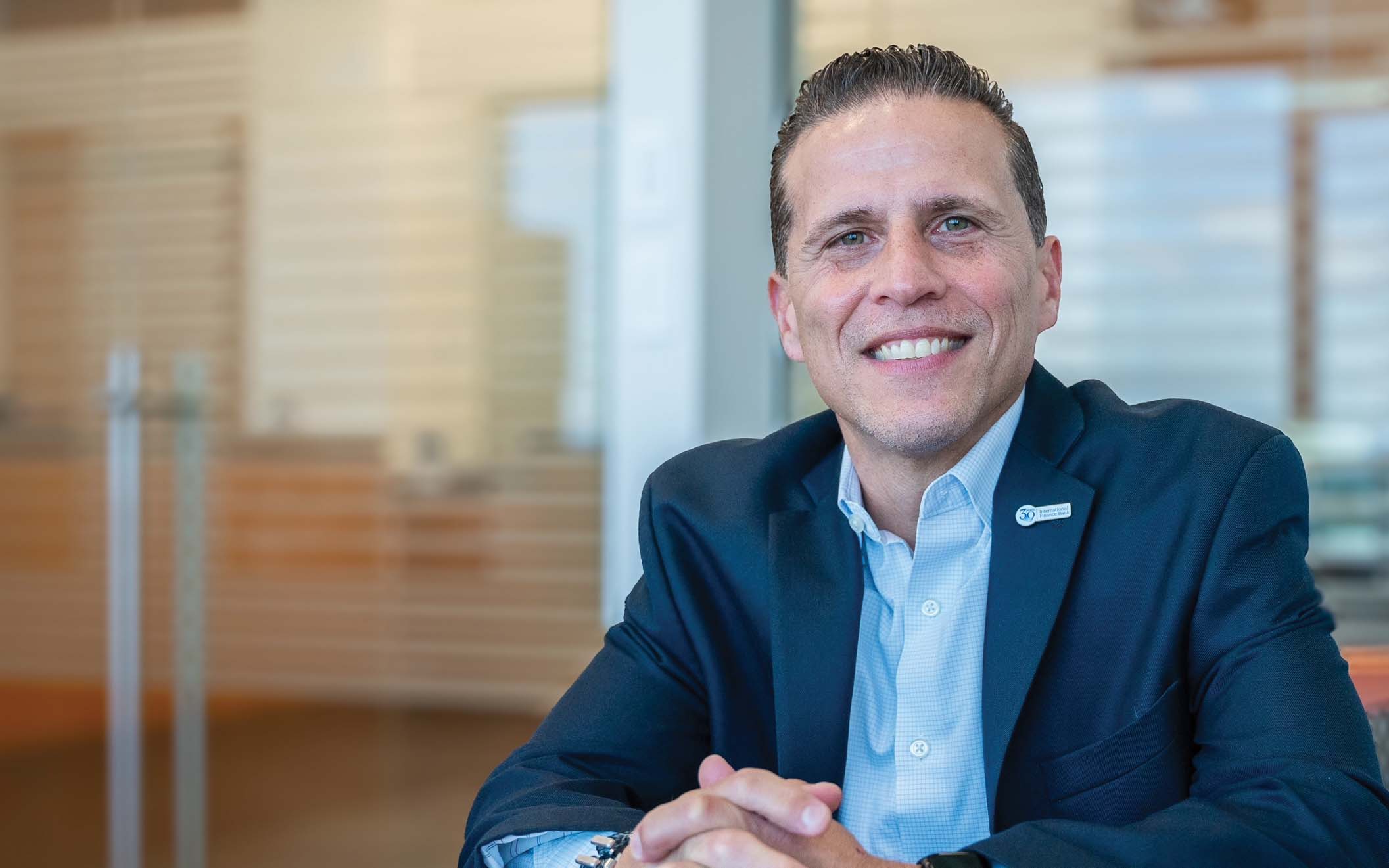
International Finance Bank (IFB) serves both the needs of its local community and its clients in selected international markets, says Alex Soto, senior vice president, head of domestic banking at the $1 billion-asset community bank.
Foreign nationals with business operations in the U.S. are often ignored by many U.S. banks because they are considered high-risk clients. As such, there are many compliance requirements when they become clients, Soto says.
“But ignoring them really impacts our community negatively,” he says. “When people think about foreign nationals owning a business in the United States, what gets lost in translation is how that business can really help the local community by hiring people and by generating revenue.”
One client from Venezuela who had an existing import-export business in Miami opened a business account and a personal checking account at IFB about eight years ago, with the intention of eventually moving to the U.S. because of the unrest in their home country.
A few years later, the client took out a mortgage with IFB on a home that they initially rented out. When the pandemic hit, the client moved to Miami, and now their business is thriving.
“Our relationship has grown, and they have been a great referral source for us—referring their friends, family members and other business associates,” Soto says. “They tell the story of how we helped their family. They share with them that we are a bank that they can count on and trust.
“That speaks to the value to our bank—that we have the human touch component, and when times get tough, we are somebody you can have a relationship with,” he adds.
Indeed, many foreign nationals come from countries where there is great mistrust and even fear of the banking systems there, Soto says. As such, IFB staff members take the time to help new clients understand how the U.S. banking system works, and staff members guide them through the process of opening business accounts and personal accounts.
They also help clients through the loan application process to buy homes and other properties like warehouses, and if needed, staff members mentor clients on how to best run the day-to-day activities of their U.S. businesses.
“Our mission is to build relationships, not just sell products and services,” Soto says. “We want to help our foreign nationals prosper and continue to grow their businesses.”
Jonestown Bank & Trust Co., Jonestown, Pa.
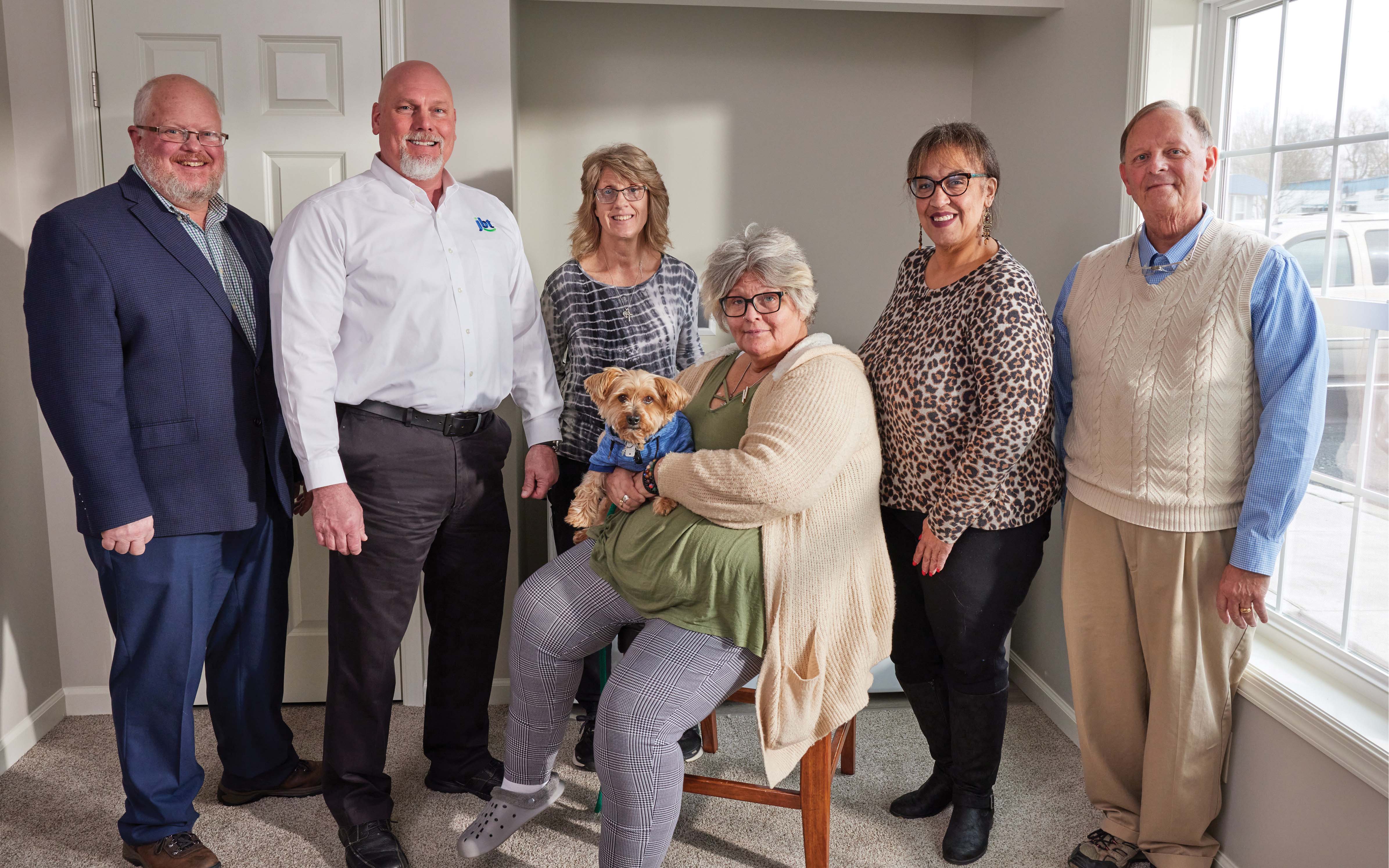
In Lebanon County, Pa., where $895 million-asset Jonestown Bank & Trust Co. (JBT) is headquartered, the waiting list for affordable housing exceeds five years, says Troy A. Peters, president and CEO. The nonprofit Community Homes of Lebanon County strives to meet the housing needs for those in need, and JBT saw an opportunity to step in and help in that effort, Peters says.
In addition to providing a $100,000 donation to launch the construction of a 23-unit handicapped-accessible neighborhood, members of JBT’s board of directors and executive team are volunteering time to help with additional fundraising and to see the project through to completion, he says.
Moreover, JBT sponsored the Community Homes application to Federal Home Loan Bank to secure a major portion of the project’s funding. JBT also provided Community Homes of Lebanon County with a low 2.75% fixed rate on two loans, a $750,000 line of credit for 18 months—now paid off—that coordinated with FLHBank, and a $200,000 construction loan for 198 months.
“Affordable housing is such a critical need in the community for older adults, low-income families and ambulatory disabled individuals,” Peters says. “To play a role in providing a home—often the first quality, safe, truly affordable home they’ve experienced—that will improve people’s lives in a real way is something JBT is excited about.”
The Community Homes project aligns with JBT’s commitment to truly be part of the communities it serves. The board, managers and employees go out of their way to meet the needs of customers as well as the general public through financial contributions and volunteering, Peters notes.
“People in the area see what JBT and our employees do, and they appreciate that,” he says. “For us, giving back is not a challenge. It’s who we are.”


